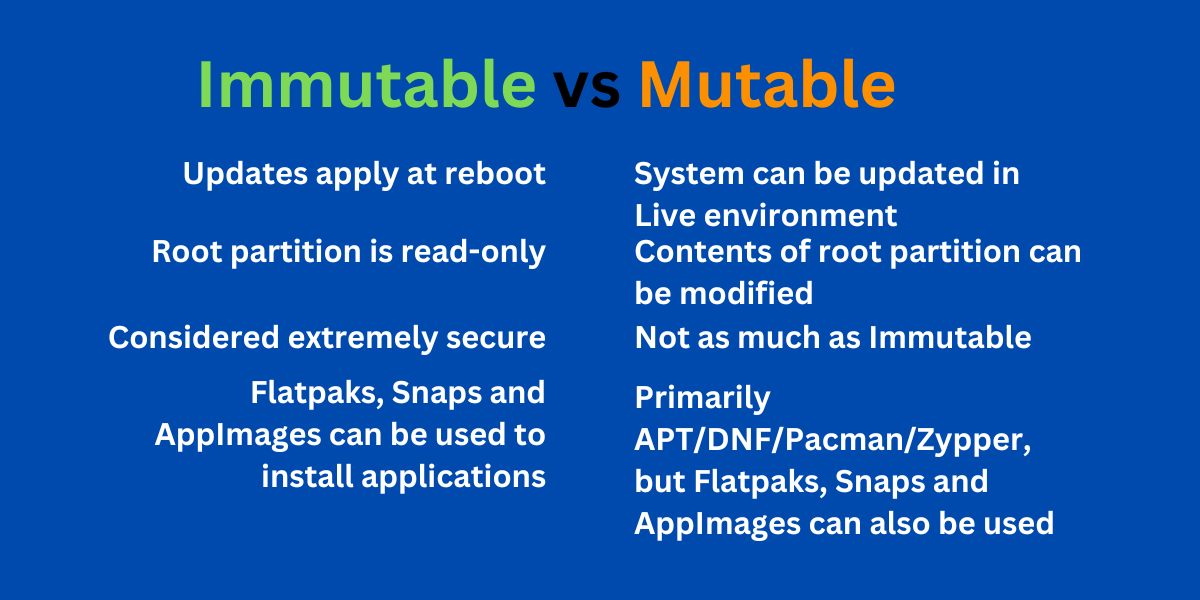what does the community think of it?
It's important to note how the Linux community interacts with change. In the past, whenever a change has been significant enough to influence individual workflows, it often provoked strong reactions. This was evident when systemd was introduced and adopted by distros like Arch and Debian. Even though systemd was arguably superior in essential aspects for most users, it failed to meet the needs of at least a vocal minority. Consequently, community endeavors were set up to enable the use of Debian or Arch without systemd.
Similarly, the introduction of immutable distributions seems to upset some people, though (at least to me) it's unjustified. Immutable distributions don't necessarily alter the traditional model. For instance, the existence of Fedora Silverblue doesn't impose changes on traditional Fedora; let alone Arch or Debian.
But, overall, most Linux users aren't bothered by it. Though, they often don't see a use for themselves. Personally, I attribute this at least in part to existing misconceptions and misinformation on the subject matter. Though, still, a minority^[1]^ (at best ~10%) actually prefers and uses 'immutable' distros.
Do the downsides outweigh the benefits or vice versa?
Depends entirely on what you want out of your system. For me, they absolutely do. But it's important to note that the most important thing they impose on the user is the paradigm shift that comes with going 'immutable'. And this is actually what traditional Linux users are most bothered by. But if you're unfamiliar with Linux conventions, then you probably won't even notice.
As a side note, it's perhaps important to note that the similarities between traditional distros are greater than the similarities between immutable distros. Also, Fedora Atomic is much more like traditional Fedora than it is similar to, say, openSUSE Aeon or Vanilla OS. Grouping them together as if they are a cohesive group with very similar attributes is misleading. Of course, they share a few traits, but overall, the differences are far more pronounced.
Therefore, it is a false dichotomy to simply label them as traditional distros versus immutable distros. Beyond these names, which we have assigned to them, these labels don't actually adequately explain how these systems work, how they interact, how their immutability is achieved (if at all), what underlying technologies they use, or how they manage user interactions. The implications of the above. Etc.
Could this help Linux reach more mainstream audiences?
The success of the Steam Deck and its SteamOS are the most striking and clear proof of this. So, yes. Absolutely.
- Not accounting SteamOS users.
